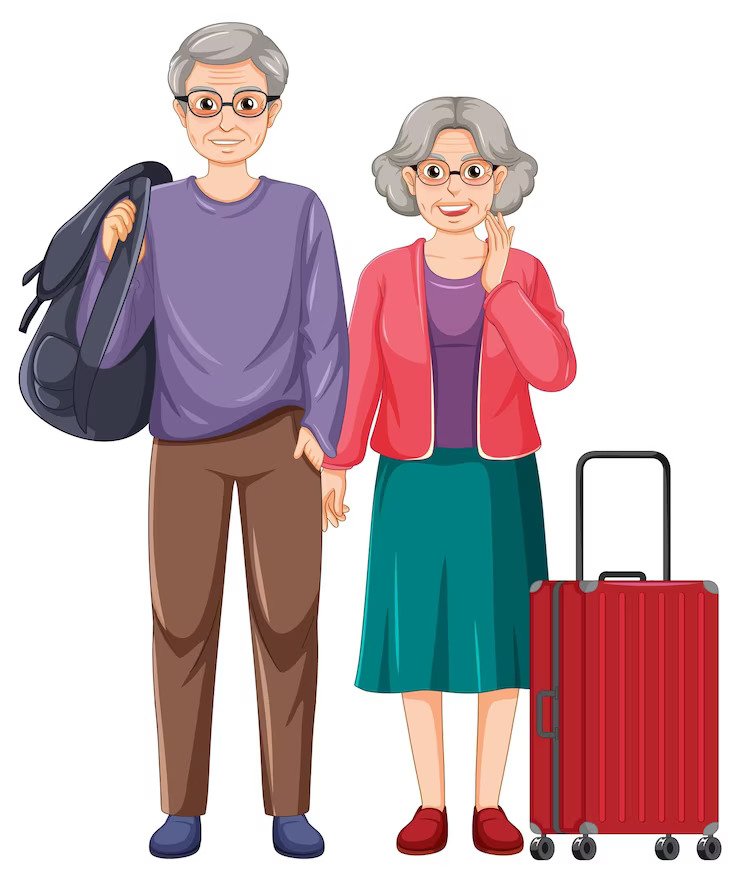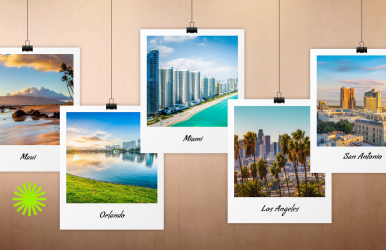3 Ways You Can Save Money Travelling
BY Ankita Mar 14, 2024
Travelling to new places is exciting, but it is also a bit heavy on your pocket. As our parents keep saying, “Nothing in life comes for free.” The same remains for traveling. It is an overwhelming experience that comes with tremendous expenses. But don’t worry; there are many clever ways to explore the world on a budget. This guide offers plenty of travel options to help you save money on accommodation, flights, and activities, guaranteeing that your upcoming trip will be unforgettable and affordable 1. Mastering the Art of Flight Savings Savings money on a flight can be an ideal tip. The reason is that flight tickets are too extravagant and can cost you significantly. There are three primary ways how you can master the art of flight savings. Flexible Itinerary When you book a flight, it is a game changer when hunting for flight discounts. Try to have a flexible schedule, and don’t be rigid with your itinerary. Flying during off-peak times is the primary keyword here, so remember that it will save you a lot of money. Use travel websites to find great travel deals. Midweek flights and those during the shoulder seasons often boast lower prices, allowing you to allocate more funds for your adventures. Set Fare Alerts Take advantage of technology by setting up fare alerts. Numerous apps and websites allow you to monitor price fluctuations for your desired route. Once the prices drop, seize the opportunity to book your tickets and watch your savings soar. Embrace Layovers Direct flights may be convenient, but layovers can be your ticket to significant savings. Opt for flights with layovers, and use the additional stop to explore an extra city or simply stretch your legs. 2. Navigating Hotel Costs with Ease I know it is difficult to sit in one place and book hotels that are located to an overall new destination. But it doesn’t always have to be a tough call. With a few best practices, you can easily get a hotel that is affordable and accessible from popular spots. Check out some expert tips below: Comparison Sites and Loyalty Programs Hotel comparison sites are a great way to understand the prices of a particular area. This will also help you to grab the best deals available at a certain time. I remember I was in Dubai, and the hotel staff didn’t have any discount options, so I went online and found some discounts and promotions on the same hotel that even the hotel staff wasn’t aware of. Crazy, isn’t it? Cheap Accommodations Think beyond traditional hotels. Try cost-effective options like Airbnb, hostel accommodations, shared living, or hotel apartments. You will get to enjoy an amazing local experience here and also save some money. Just make sure you eat things that your stomach agrees with, or you will be on an adventure to the local hospital. Trust me, no one enjoys that. Last-Minute Deals Flexibility can be your friend when it comes to last-minute hotel deals. Platforms offer huge discounts on unbooked accommodation, a golden opportunity for adventurous travelers. 3. Maximizing Enjoyment on a Budget with Clever Activity Choices If you are a smart citizen and a frequent traveler, you might know about different coupons and discount cards. These cards make your journey easier by planning trips on a budget. Some free walking events and tours are also included. Have a look at them: City Passes and Discount Cards Discount cards are what you need when you are traveling on a budget. Thankfully, there are many tourist destinations that offer tourist passes and vouchers. Don’t be shy and grab any opportunity that comes your way to reduce costs. Free Walking Tours and Events Free walking tours let you experience so much more than when traveling in a car. Usually, on these tours, there are people who know many things about the locality, and they can guide you to the best places to have fun. It is always better if you check if the place you are traveling to has some free tours led by knowledgeable guides. You will learn so much more this way. Research and Plan Ahead Research free or low-cost services before you arrive at your destination. Parks, museums with free days, and local festivals can add memorable experiences to your itinerary without breaking your budget. Related: How Can Your Credit Card Save You Money On Holiday Travel Benefits Of Saving Money While Traveling It is needless to say that saving money comes with its unique benefits. But as far as traveling is concerned, you can reap various other advantages, too. For example: You Can Plan Another Trip With all that you’ve said, you can embark on another trip. Maybe, in the same year. I am not kidding, guys. Avoid unnecessary expenses, opt for local transport, and shop less. These tips can help you save a lot of money and plan yet another trip in the upcoming months. Acts As A Backup A trip comes with unprecedented challenges. You never know when you might get stuck in a particular situation without any help. In such scenarios, extra money can help you get out of danger. After all, you cannot depend on a stranger when you are visiting a different city. Promotes Well-Being Last but not least, it promotes your overall well-being. It is good to live life on your terms. Having a break once in a while is good. But make sure, you do not end up spending all that you’ve saved. Make a budget itinerary and plan your trips accordingly. Concluding Words Smart planning and a little adjustment can turn your travel dreams into reality without draining your wallet. You just need to make sure that you have loads of fun while you are traveling and keep your wits about yourself even when things go south. Travelling is very good when you are alone, and you have many good experiences. We all love traveling and having new friends in different countries. Just have fun because you are spending a lot on these adventures. Happy travels! Read Also: How To Save Money On Your Next Trip How To Use VPN To Book Flights & Hotels Cheaper And Save Money How To Save Money By Using Cheap Parking Near O’Hare Airport?















